PAKISTAN prime minister Imran Khan has urged Muslim-majority countries to force western governments to criminalise insulting the Prophet Mohammed and called for trade boycott.
In a televised address on Monday (19), Khan said that countries need to explain why this hurts them when in the name of freedom of speech the western world insult the honour of the prophet, reported The Daily Mail.
"When 50 Muslim countries will unite and say this, and say that if something like this happens in any country, then we will launch a trade boycott on them and not buy their goods, that will have an effect," he said.
According to him, insulting Islam's Prophet should be treated in the same way as questioning the Holocaust, which is a crime in some European countries.
The address came as the Pakistani government opened negotiations with a radical religious group over anti-blasphemy protests against France. The Tehrik-e-Labaik Pakistan (TLP) freed 11 police abducted during the protests in which four officers were killed.
Most main businesses, markets, shopping malls and public transport services were closed in major cities in response to a strike call by the TLP and its affiliated groups.
The government outlawed the TLP last week after it blocked main highways, railways and access routes to major cities, assaulting police and burning public property.
The violence erupted after the government detained TLP leader Saad Hussain Rizvi ahead of a planned countrywide anti-France campaign to pressure the Islamabad government to expel the French ambassador in response to the publication of cartoons in France last year depicting the Prophet Mohammed.
The TLP has presented four main demands in the talks with the government which include expulsion of the French ambassador, release of the TLP leader and around 1,400 arrested workers, lifting the ban on the group and the dismissal of the home minister.
However, Khan said expelling the French ambassador would only cause damage to Pakistan, and diplomatic engagement between the Muslim world and the West was the only way to resolve disputes.
"When we send the French ambassador back and break relations with them it means we break relations with the EU. Half our textile exports go to the EU, so half our textile exports would be gone," the prime minister said.
Relations between Paris and Islamabad have worsened since the end of last year after president Emmanuel Macron defended freedom of speech while paying tribute to a French history teacher who was beheaded by an 18-year-old man of Chechen origin for showing cartoons of the Prophet during a lesson.
According to The Daily Mail, Khan's government signed a deal promising to present a resolution in parliament by Tuesday (20) to seek approval for the expulsion of the French envoy and to endorse a boycott of French products.






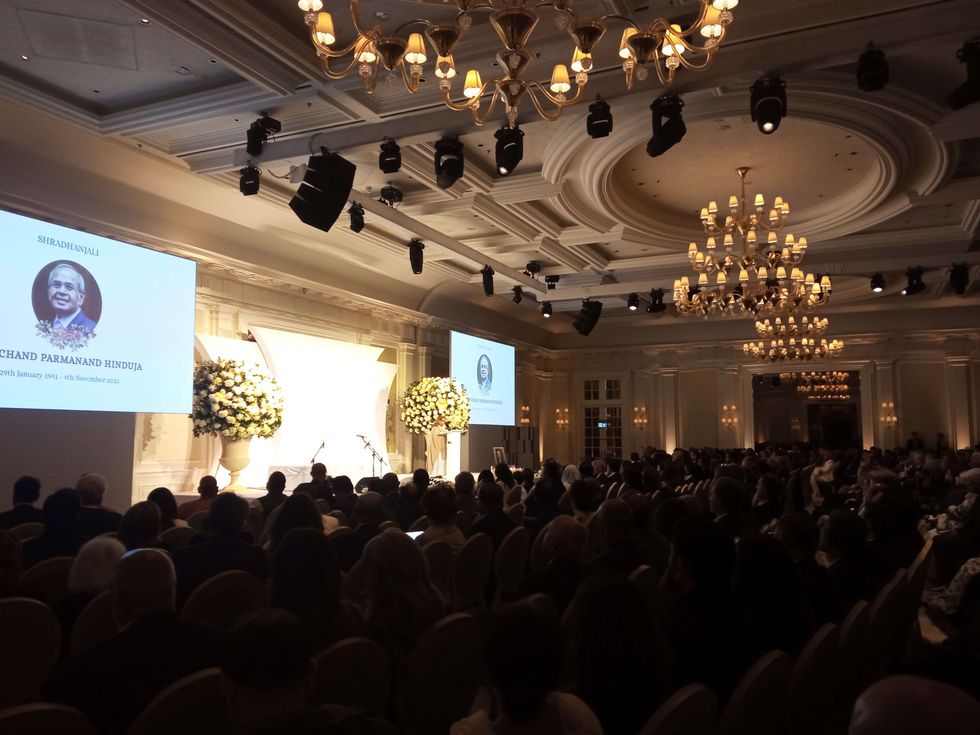 OWO Ballroom packed for memorial for Gopi Hinduja.
OWO Ballroom packed for memorial for Gopi Hinduja.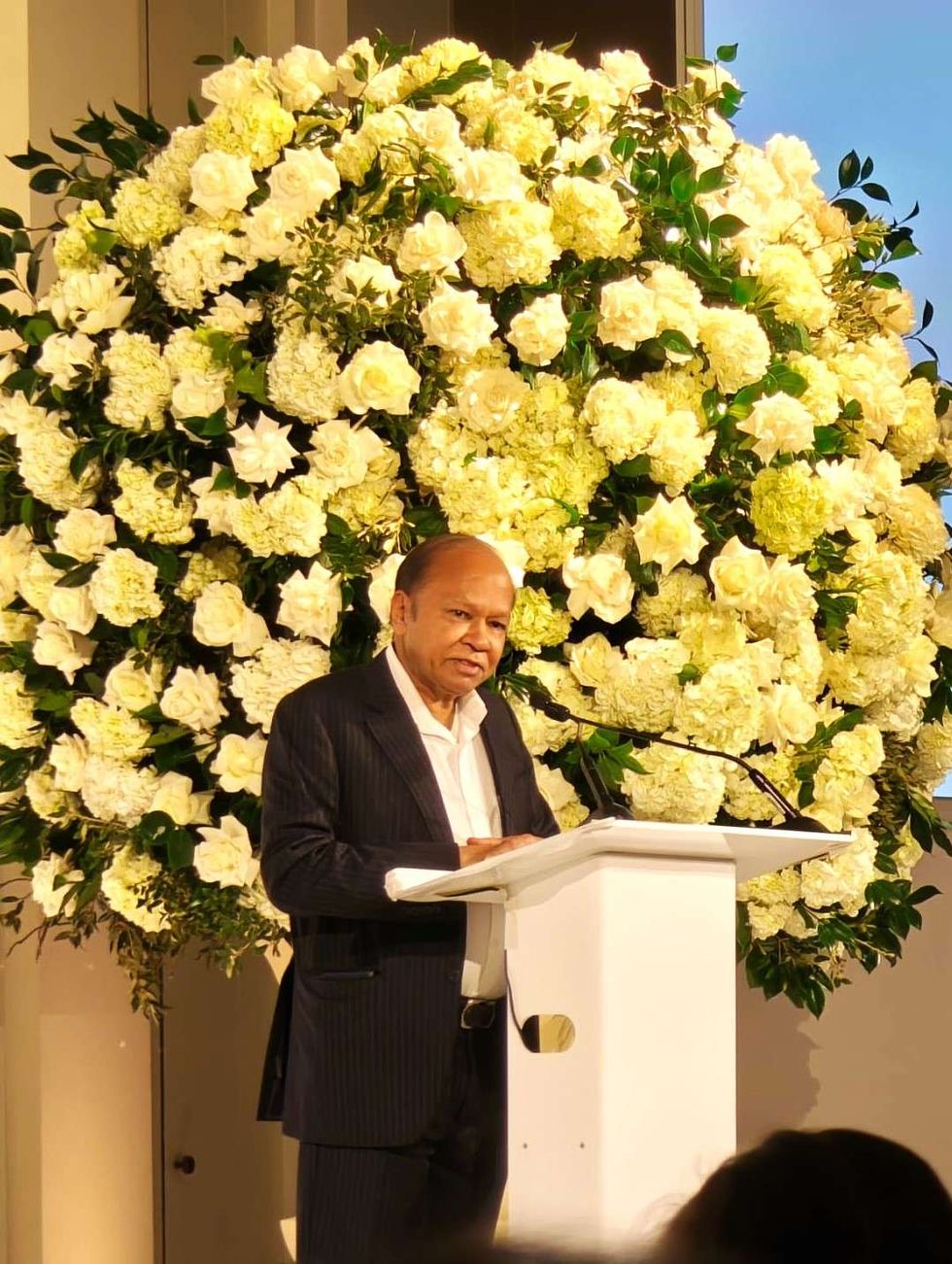 At OWO Ballroom, Sri Prakash Lohia.
At OWO Ballroom, Sri Prakash Lohia.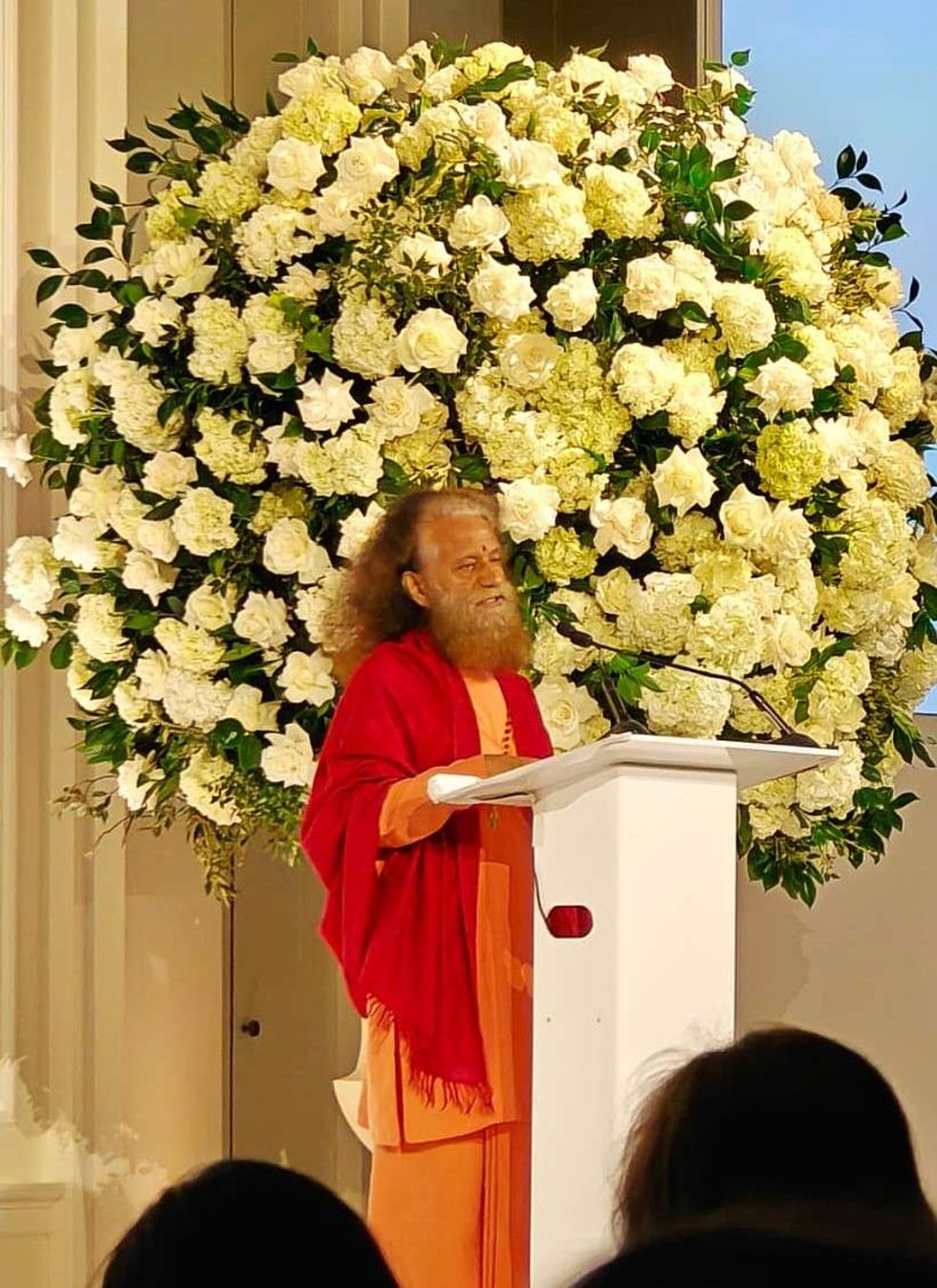 Swami Chidanand Saraswati at the memorial service.
Swami Chidanand Saraswati at the memorial service.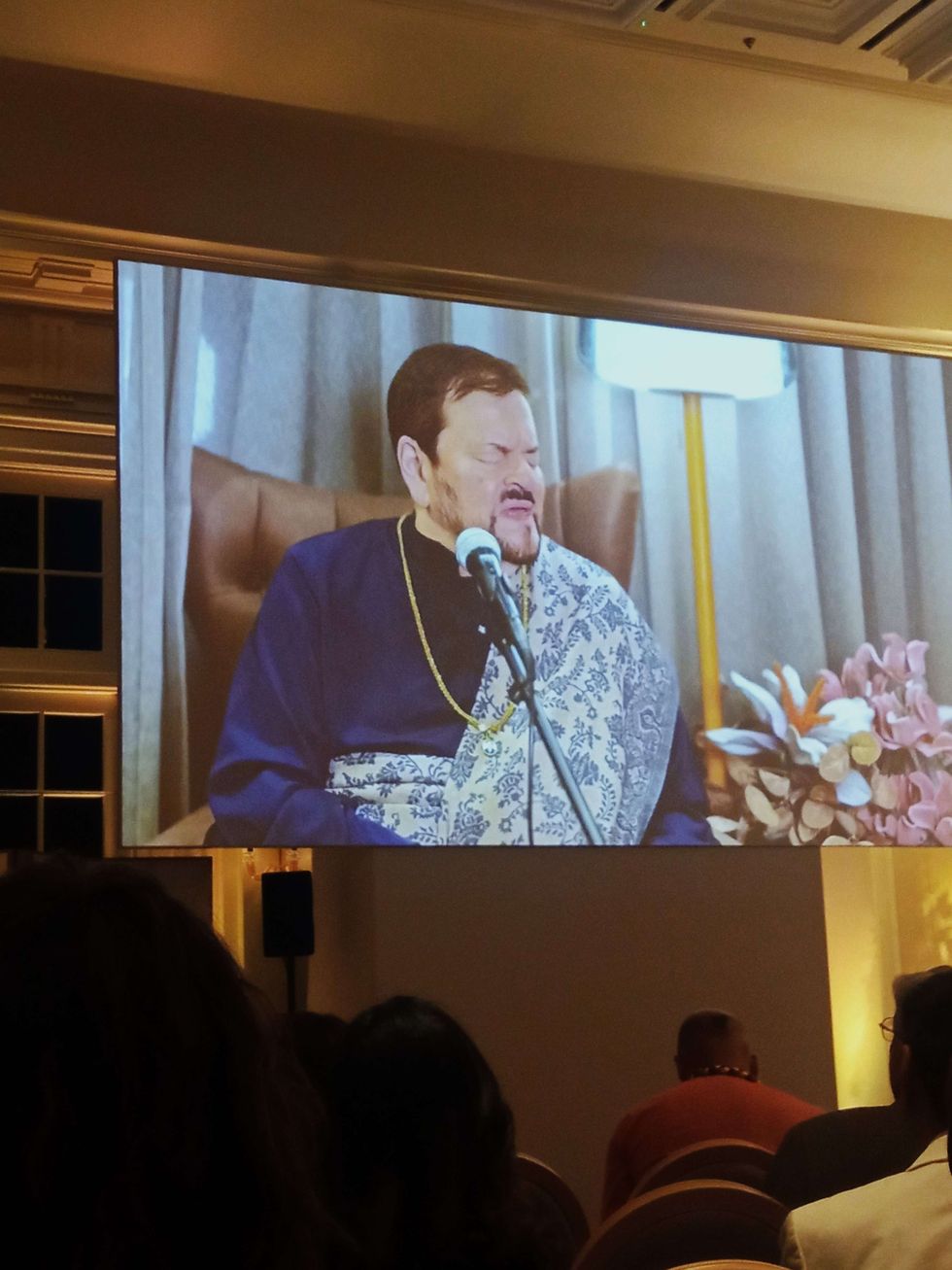 Nitin Mukesh singing songs on Zoom during the memorial.
Nitin Mukesh singing songs on Zoom during the memorial.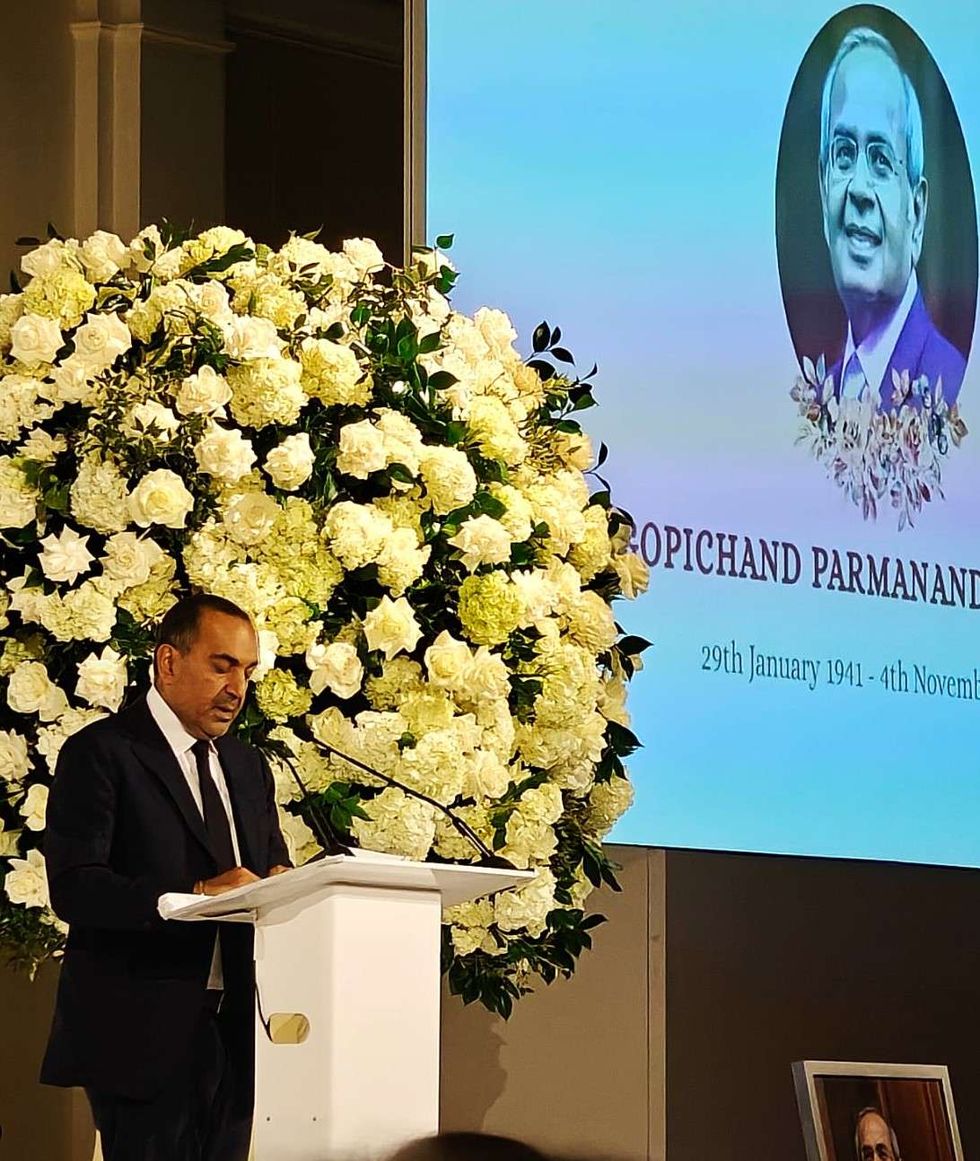 Sanjay Hinduja during the memorial.
Sanjay Hinduja during the memorial.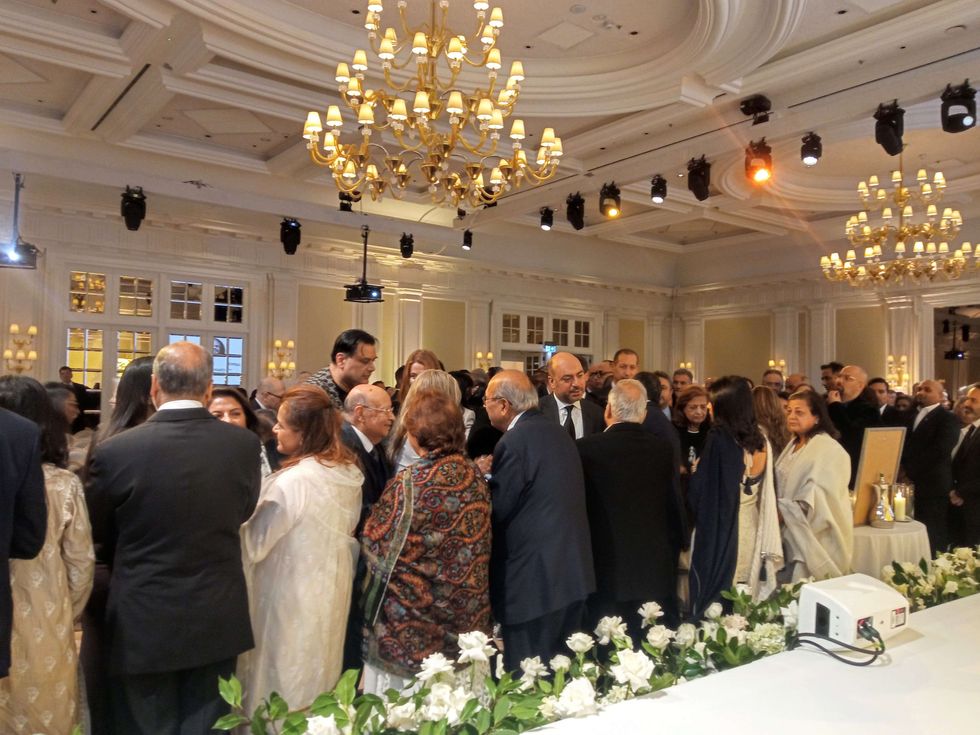 Hinduja family members meet those who attended memorial service.
Hinduja family members meet those who attended memorial service.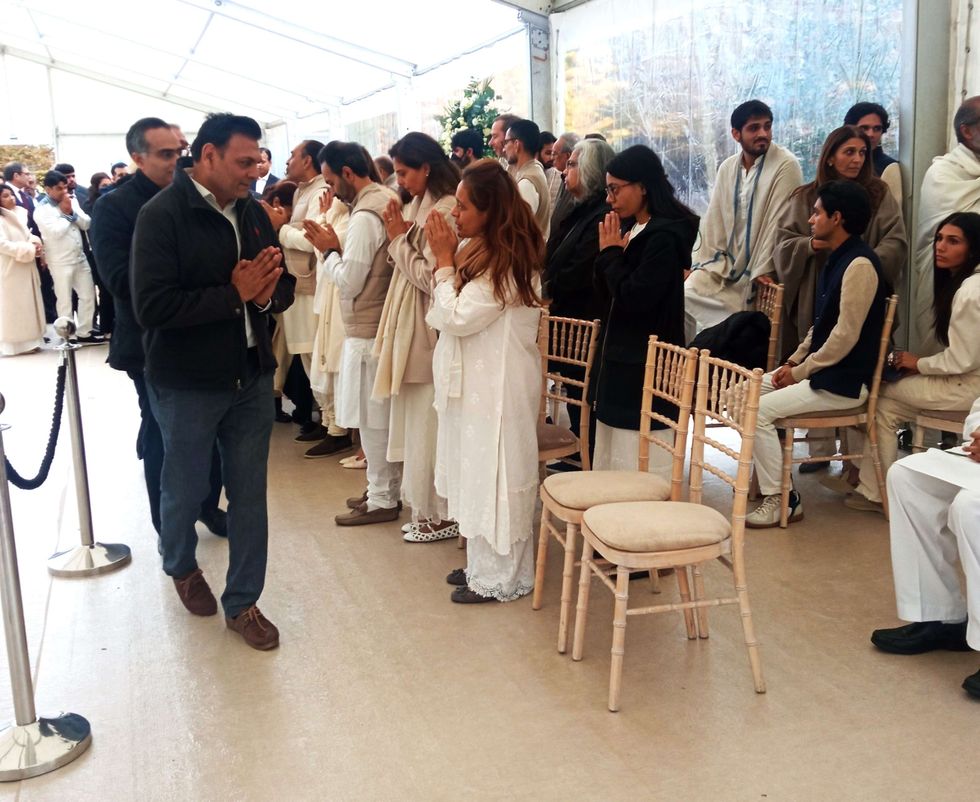 At Chilterns, mourners meet Hinduja family members.
At Chilterns, mourners meet Hinduja family members. Autumn was Gopi's favourite season.
Autumn was Gopi's favourite season.






